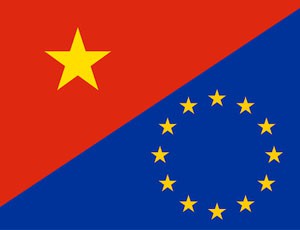How to Establish a Joint-Stock Company in Vietnam?
In addition to limited liability companies, partnerships, and private enterprises, joint-stock companies are recognized by Vietnamese law. When a Vietnam authority issues a Certificate of Business Registration, a joint-stock company gains legal status. Consult with corporate lawyers in Vietnam to learn about the advantages of various company formations in Vietnam for the owner's efficient management and goals.
As per the meaning of the Law on Undertakings, a business entity is a venture whose sanction capital is separated into two halves called shares. A joint-stock company can have individuals or organizations as its shareholders; the minimum number of shareholders is three. Since there is no maximum number of shareholders, the company will be able to easily expand its operations on a larger scale. In addition, shareholders will only be responsible for the company's debts and other property obligations up to the amount of capital contributed. Due to the level of risk that shareholders must bear, this is an advantage of this type of business. Specifically, business entities reserve the privilege to give offers, bonds and different protections to raise capital, which is a component that different kinds of organizations don't have.
The owner of a business in Vietnam has the option of submitting a set of documents to the Business Registration Office where the intended head office is located on their own or by authorizing another individual, organization, or law firm in Vietnam to do so. These documents include:
1.An application for enterprise registration;
2.The company’s charter;
3.List of founding shareholders and list of shareholders being foreign investors;
4.Copies of the following papers:
a) Legal papers of the individual for the legal representative of the enterprise;
b) Personal legal papers for company members, founding shareholders, shareholders being foreign investors who are individuals; Legal papers of the organization for members, founding shareholders, shareholders being foreign investors being organizations; Legal documents of individuals for authorized representatives of members, founding shareholders, shareholders being foreign investors being organizations and documents on appointment of authorized representatives.
For individuals and investors being unfamiliar associations, duplicates of lawful papers of the association should be authenticated and consularly sanctioned in Vietnam; The owner of a business in Vietnam has the option of submitting a set of documents to the Business Registration Office where the intended head office is located on their own or by authorizing another individual, organization, or law firm to do so. These documents include:
c)Investment registration certificate, in case the enterprise is established or participated in the establishment by a foreign investor or a foreign-invested economic organization in accordance with the provisions of the Investment Law and other legal documents; implementation manual.
The Business Registration Office will process the application within three working days of receiving it.
ANT Lawyers could assist you in establishing a joint-stock company in Vietnam with their highly skilled staff and extensive experience in foreign investment.





.jpg)
.jpg)















.jpg)
.jpg)
.jpg)
.jpg)
.jpg)